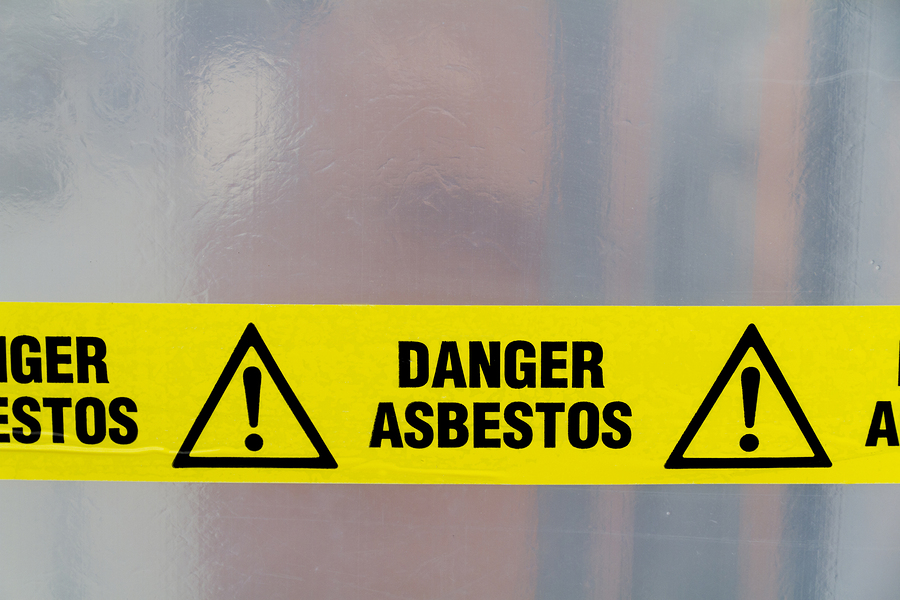Mesothelioma occurs when cells in the mesothelium become cancerous. The mesothelium is a thin membrane protecting the body’s vital organs. This cancer typically begins in the chest, heart or abdomen and can spread throughout the body. Mesothelioma is typically discovered in the advanced stages. The prognosis for an individual with mesothelioma is five to ten years. Asbestos exposure is the leading cause of developing mesothelioma.
How is Mesothelioma Treated?
There are several ways of treating mesothelioma; in many cases, more than one option is utilized. The type of treatments available depends on the health of the individual, the location of the cancer, and how far it has progressed. Mesothelioma is treated to alleviate side-effects and in attempts to mitigate further complications such as pneumonitis. Patients should discuss treatment goals with their doctor. Long-term survival with mesothelioma is unlikely particularly for older individuals and those with mesothelioma in advanced stages.
Surgery
Surgery is not always an option for removing mesothelioma. While some of the cancer may be able to be removed in a process called debulking, this is not a cure. Surgical options which remove tissue from the lining of the lungs or abdomen may remove some of the difficulties associated with mesothelioma. A catheter may be inserted into the lungs to release fluid buildup and insert medicine to discourage the fluid from returning. In some cases of pleural mesothelioma, one of the lungs may be removed. This will often remove a great deal of the cancer and allows more radiation to be applied to the area without fear of harming the lung.
 Chemotherapy
Chemotherapy
Using chemicals heated and inserted directly at the site, a process called intraperitoneal chemotherapy, allows the cancer to be aggressively targeted with less harm to surrounding healthy cells. Applying this treatment prior to surgery makes the operation simpler. The treatment may also be applied post-surgically (adjuvant therapy) to prevent cancer from reoccurring in that area.
Radiation
Radiation therapy makes use of highly concentrated proton and x-ray beams targeted directly at cancer cells. This treatment may be applied after surgery in the same manner as chemotherapy. Radiation is a viable option for reducing signs and symptoms when surgery is not an option.
What Types of Radiation are Used in Treatments?
There are two types of radiation therapy available for treating mesothelioma.
External Beam Radiation Therapy
Also known as EBRT, is the most common form of radiation therapy for mesothelioma. Being treated with radiation is not dissimilar to getting an x-ray. Powerful radioactive energy beams are targeted at cancer cells in the hopes of killing them and preventing them from spreading. The treatment itself lasts only minutes. Positioning the individual so the correct angles can be achieved is more time consuming and challenging. Individuals typically receive treatment five days a week.
 Advances in technology have made this treatment even better than it was in the past. A medical team will thoroughly examine the body and the cancer to decide which angles will work best for targeting the cells. Computer imaging allows doctors to get a much clearer view of the inside of the body so that more healthy cells are avoided. This provides a better experience overall — targeting the cancer more accurately and reducing negative side-effects.
Advances in technology have made this treatment even better than it was in the past. A medical team will thoroughly examine the body and the cancer to decide which angles will work best for targeting the cells. Computer imaging allows doctors to get a much clearer view of the inside of the body so that more healthy cells are avoided. This provides a better experience overall — targeting the cancer more accurately and reducing negative side-effects.
Brachytherapy
The second type of radiation therapy is less-commonly used for treating mesothelioma. This therapy works by placing a contained source of radiation inside the body near the cancer site. These short radiation waves target the cancerous cells directly while avoiding healthy cells. This type of therapy is more commonly used for cancerous tumors of the breast and prostate. These radiation sources can be permanent or temporary.
What are Common Side Effects of Mesothelioma Radiation?
There are several side effects which are common after receiving radiation therapy for mesothelioma. Some are short-term, others may be permanent or last for years. Some of the side effects are dependent upon the location of the radiation.
Fatigue
The fatigue that comes with radiation is a deep feeling of weariness and low energy. Individuals will need a great deal of downtime and should avoid stress as much as possible. Many daily activities will be impossible, and it is important that the individual has someone to help with daily chores and errands. Fortunately, these effects will be drastically reduced or gone completely once radiation treatment has stopped.
Skin Irritation and Darkening
Irritation at the radiation site may occur. As with fatigue, many of these side effects will wane over time. Occasionally some scarring or discoloration may remain permanently. Typical afflictions can include burning sensations, itchiness, dry patches, swelling, and peeling or blistering.
 Hair loss at the treatment site may occur, and will often grow back, though maybe not as thick as it was before. Similarly, darkening and thickening of the skin around the treatment site is a common occurrence. This effect is typically permanent.
Hair loss at the treatment site may occur, and will often grow back, though maybe not as thick as it was before. Similarly, darkening and thickening of the skin around the treatment site is a common occurrence. This effect is typically permanent.
Chest Radiation
Radiation therapy occurring at the chest might include some additional side effects. Shortness of breath and coughing can lead to shallow breathing which can result in pneumonitis. Throat swelling and irritation may also occur which could lead to a reduced appetite and poor nutrition, weakness and weight loss.
Abdomen Radiation
Radiation therapy aimed at the abdominal cavity can result in a variety of side effects. Cramping, bowel discomfort and urinary incontinence may occur. Nausea and vomiting are common. Thankfully, these symptoms can often be treated with over the counter medications.
Methods for Managing Common Side Effects
Maintaining health, getting adequate rest and reducing stress as much as possible are essential to recovering from radiation treatment. Here are several tips that may provide general relief:
- Try relaxation and breathing techniques
- Wear loose, breathable clothing
- Check with cancer team before using lotions on radiation site
- Soothe a sore throat with nutritious smoothies and juices
- Invest in a bedside fan to reduce feelings of breathlessness
- Talk to cancer team about over the counter medicines for alleviating side effects
- Keep in mind the worst effects of radiation are temporary
- Stay positive

